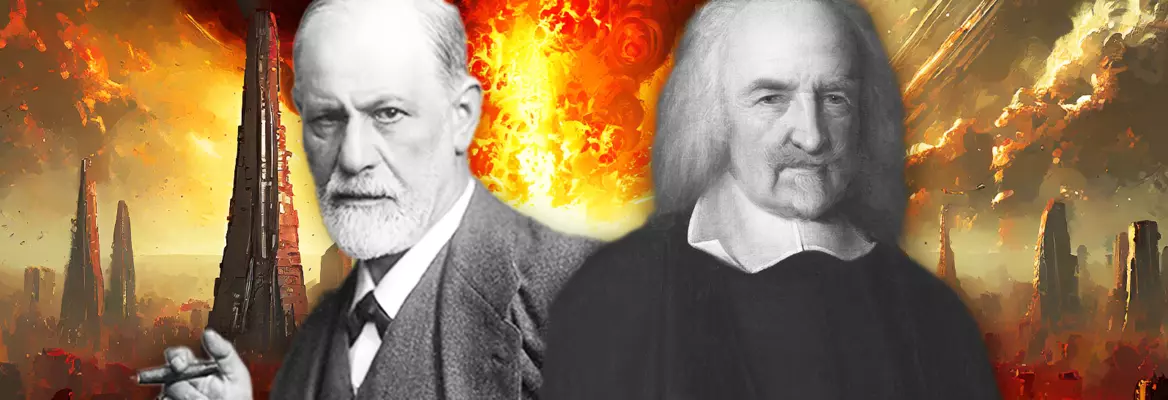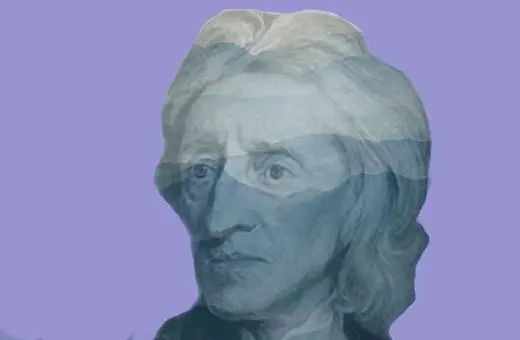The world is at war with itself. Pessimism is rife. Hobbes and Freud diagnosed war as a permanent feature of human life. But, arguing against these figures, philosopher Lou Marinoff, claims war is not necessary. Peace is possible. The self-consciousness of human beings allows us to negate our animalistic instincts towards aggression and hatred. But we’re asleep at the wheel. Marinoff provides a wake-up call.
Hobbes and Freud on Human Nature
Writing between the First and Second World Wars, amidst the global depression triggered by the Wall Street crash of 1929 and escalating clashes between Communists and Nazis in Germany, Sigmund Freud found many reasons to wax pessimistic about the human condition. In Civilization and Its Discontents, and related works, he postulated that our murderous biological inheritance and irremediably infantile psychology predispose us time and again to episodes of mass psychosis and organized group violence. Freud further opined that we are living “psychologically beyond our means” to suppose that we can ever achieve a world without inequity, strife and war. He implored us to “recognize the truth”: that intellect and will are merely “a plaything and tool of our instincts and affects”, that hatred is evolutionarily older than love, that our deepest impulses are Draconian, and that we are all descended from a primeval “gang of murderers”.
Thus Freud unknowingly reconstituted a psychological version of Thomas Hobbes’s 1651 Leviathan. Hobbes had repudiated Original Sin and adjudged human nature to be neither good nor evil in itself, but rather perpetually dangerous and volatile. Hobbes’s description of our natural state is “a war of all against all”, a ceaseless and ruthless power struggle among myopically self-regarding predators, whose lives are “nasty, brutish and short”. Hobbes’s prescription for our emergence from congenital savagery into civilization is the establishment of a common power to sustain social contracts and protect the state itself. Sovereign government necessarily wields both the scepter of justice and the sword of defense.
___
Had Hobbes witnessed the Napoleonic era, the World Wars, the Cold War, the dozens of tribal and proxy wars since 1945, and the dozens of such wars still raging, he’d simply shrug and say he told us so.
___
While a common power and a common cause abet alignment of a polity and minimize outbreaks of civil war, Hobbes observed that sovereigns persist in a meta-state of nature amongst themselves, since no temporal authority exists to keep them all in awe. Hence our most robust solution for maintaining civil peace—namely stable national government—potentiates international war. Had Hobbes witnessed the Napoleonic era, the World Wars, the Cold War, the dozens of tribal and proxy wars since 1945, and the dozens of such wars still raging, he’d simply shrug and say he told us so.
Tolstoy hammered a fatalistic nail into this coffin. In War and Peace he argued that all wars are fated from the inception of the universe, that Napoleon was only a pawn in a cosmic chess match, and that “a King is History’s slave”.
___
We find no analytic truth, no mathematical rule, no natural philosophical deduction, no aetiological necessity, no biological imperative, no cultural predestination, and no systemic inevitability, which dictate that war must be; hence, we conclude that peace can be.
___





















Join the conversation